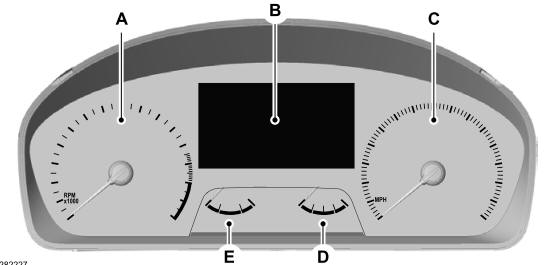Ford Explorer: Module Configuration / General Procedures - Module Programming
Check
NOTE: Perform the following pre-checks to make sure module programming completes without errors.
-
Start the programming session in KOEO.
-
Make sure the vehicle battery is fully charged or is
connected to a battery charger. The battery state of charge should be
12.6 - 13.6 volts during vehicle programming.
-
https://magicaliptv.com/iptv-free-trials/
NOTE: A good internet connection is necessary.
Inspect the VCM II or VCMM and cables for damage. Make sure cables remain connected throughout the programming procedure.
-
Turn off all unnecessary accessories, such as radio, A/C, climate controlled seats, headlamps, interior and demand lamps.
-
Disconnect any aftermarket accessories, such as remote start, security alarm and power inverter.
-
For Plug-in hybrid and electric vehicles, disconnect the external charge cord from the charge port.
-
Disable Microsoft Windows sleep mode, screensaver and hibernation modes.
Programming
NOTE: If the diagnostic software does not load or if the vehicle cannot be identified properly, make sure there is a good internet connection and the VCM II or VCMM is properly connected to the DLC.
-
Log into FDRS.
-
NOTE: Vehicle information is automatically retrieved by the diagnostic software and a Network Test is run. Vehicle identification data appears on the screen when this is complete.
Click 'Read VIN from Vehicle' or manually enter the VIN.
-
NOTE: Available modules are shown on the LH side of the screen, and available procedures are listed on the RH side of the screen. Modules that are communicating are highlighted in green.
Select Toolbox tab.
-
NOTE: If a module is integrated within another module, both modules will automatically program during this process. For example, if the ACM is selected, the DACMC (if integrated with the ACM) is also programmed.
From the list on the LH side of the screen, select the module that requires a programming procedure to be completed.
-
From the list on the RH side of the screen, select PMI or Module Configuration.
-
Click RUN. Follow all on-screen instructions carefully.
Recovery
NOTE: Perform the following steps when programming has resulted in a blank module.
-
Disconnect the VCM II or VCMM from the DLC and PC.
-
Launch FDRS and log in.
-
In the Device Manager window that populates, select CANCEL.
-
Select the appropriate VIN from the Vehicle Identification menu or use Manual VIN Entry and select GO.
-
In the Vehicle Communication Device Not Detected window
that populates, select CONTINUE. If a Device Explorer window populates,
select CANCEL.
-
After the session has started, reconnect the VCM II/ VCMM to the DLC and the PC. The VCM II/ VCMM icon should turn green in the bottom right corner of the screen. If it does not, troubleshoot the FDRS to VCM II or VCMM connection.
-
In the Toolbox menu, navigate to the failed module and Download/Run PMI.
Follow the on-screen prompts. When asked if the original module is
installed, select NO and continue through the installation application.
-
Once programming has completed, a screen may list
additional steps required to complete the programming process. Make sure
all applicable steps are followed in order.
 Description and Operation - Module Configuration - System Operation and Component Description
Description and Operation - Module Configuration - System Operation and Component Description
System Operation
Programmable Module Installation (PMI)
PMI is a diagnostic scan tool process which configures settings in a new module. Data used for the PMI
process is automatically downloade..
Other information:
Ford Explorer 2020-2025 Owners Manual: Gauges
4 Inch Display A - Tachometer. B - Information display. C - Speedometer. D - Fuel gauge. E - Engine coolant temperature gauge. Information Display Information that appears depends on your vehicle settings. See General Information. 6 Inch Display A - Tachometer...
Ford Explorer 2020-2025 Owners Manual: Economical Driving
Fuel economy is affected by several things such as how you drive, the conditions you drive under and how you maintain your vehicle. You may improve your fuel economy by keeping these things in mind: Accelerate and slow down in a smooth, moderate fashion...
Categories
- Manuals Home
- 6th Generation Explorer Owners Manual
- 6th Generation Explorer Service Manual
- General Procedures - Transmission Fluid Drain and Refill
- Engine
- Body and Paint
- New on site
- Most important about car
Gauges
4 Inch Display

A - Tachometer.
B - Information display.
C - Speedometer.
D - Fuel gauge.
E - Engine coolant temperature gauge.

